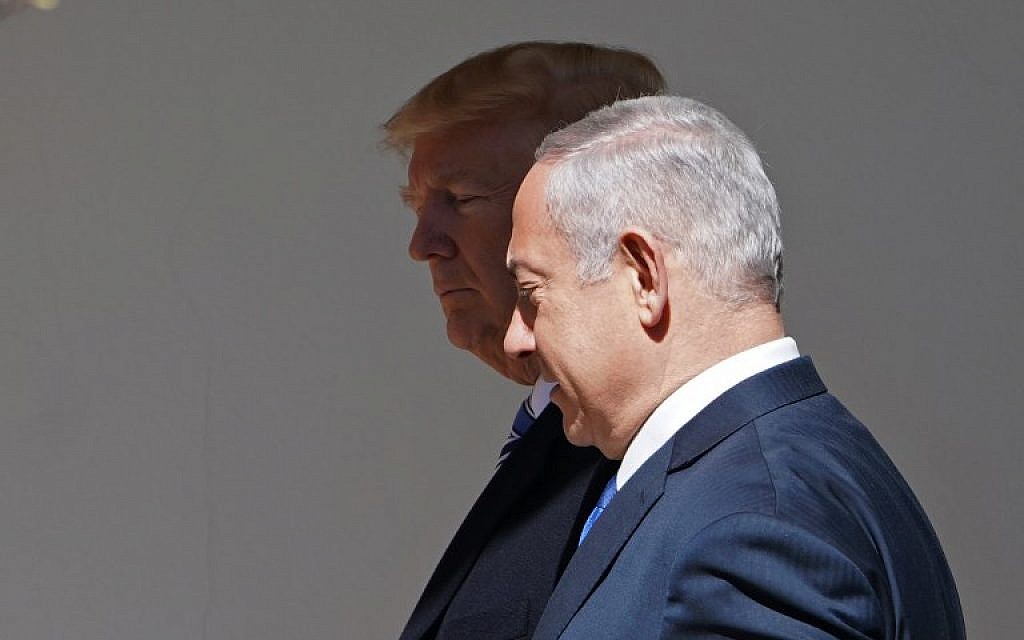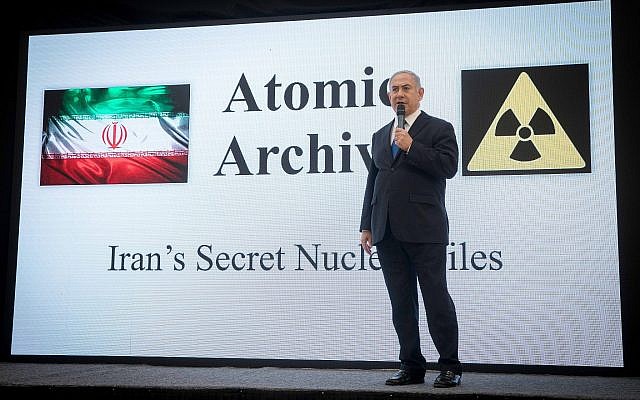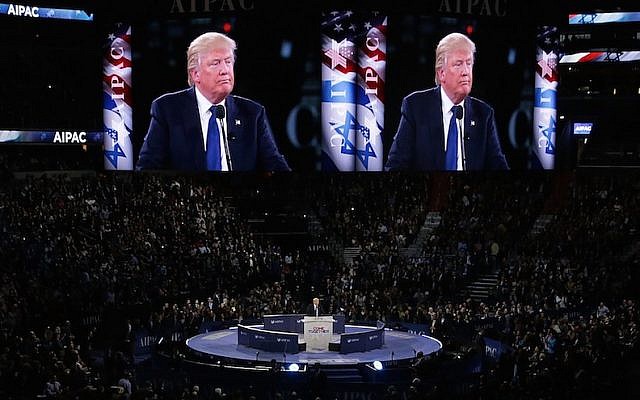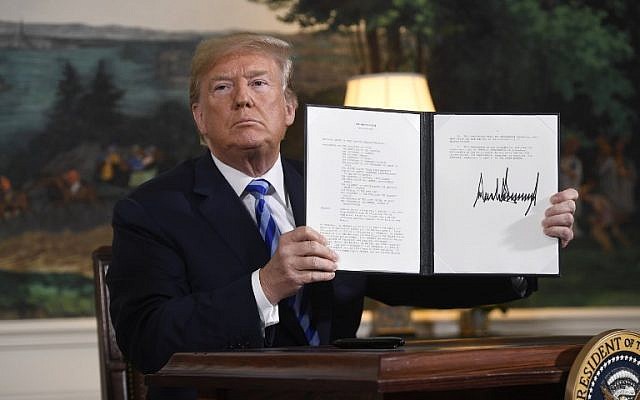US president’s speech had nearly everything PM hoped for, except an explicit threat of military action. Time will tell if Tehran returns to the negotiation table or the centrifuges

Fix it or nix it, Prime Minister Benjamin Netanyahu demanded. On Tuesday, Donald Trump nixed it, big time.
The US president’s announcement that the US is withdrawing from the Iran nuclear deal, vowing to institute “the highest level of economic sanctions” on the Islamic Republic, can be seen as one of Netanyahu’s greatest foreign policy achievements, on par with or even greater than Trump’s recognition of Jerusalem as Israel’s capital.
In his first reaction to Trump’s speech, Netanyahu hailed the president’s “bold” decision but refrained from taking any credit for it. Others did it for him.
“All those who at the time attacked the prime minister for his determination to fight against the agreement, and argued there was no chance the agreement would be rescinded, have to eat their hats today and apologize to Netanyahu,” senior Likud Minister Ze’ev Elkin said.
Many criticized the prime minister for going to Congress in 2015 to speak out against the looming Iran deal. They argued that the speech would inevitably fail to scuttle the agreement and needlessly anger then-president Barack Obama. Indeed, Netanyahu’s critics later noted, Obama took revenge on Israel by not vetoing an anti-settlements resolution at the United Nations Security Council in December 2016.
So Netanyahu’s camp can feel vindicated by Trump’s announcement to gut one of Obama’s key foreign policy achievements, with the Tuesday speech reading as if it had been written in Jerusalem. It listed nearly all the points the prime minister would have made if he had given the address himself: the fatal flaws of the nuclear agreement, Iran’s support for terrorism and development of ballistic missiles.
The president event mentioned Israel’s revelation last week of Tehran’s secret atomic archive, saying it “conclusively” proved the regime’s history of seeking nuclear weapons.

The one thing that Netanyahu would have likely added to the speech was the threat of military action if Iran were to try to break out to nuclear weapons capability. Jerusalem believes that the Islamic Republic can only be prevented from its scheme via crippling sanctions coupled with the credible threat of military force.
“As it’s been proven in the case of North Korea, the only way to curb determined dictatorships seeking nuclear weapons is by imposing severe sanctions and showing a willingness to use force,” Intelligence Minister Yisrael Katz said in a statement issued minutes after Trump’s speech.
But the US president, presumably not wanting to be seen as eager to start new wars in the Middle East, expressed no such willingness.
He didn’t even say “All options are on the table,” or anything of the sort. He merely hinted that, if Iran continued its nuclear aspirations, “it will have bigger problems than it has ever had before,” a vague threat made in the context of “powerful sanctions” rather than of American military might.
How much credit does Netanyahu deserve?
How much credit Netanyahu really deserves for the president’s ixnay on the Iran agreement is hard to say. After all, Donald Trump never made a secret of his utter disdain for the deal.
Addressing an AIPAC conference when he was still a presidential hopeful few people believed would ever make it to the Oval Office, he said he had studied the Iranian issue “in great detail, I would say actually greater by far than anybody else,” and promised that his “number-one priority” would be to dismantle the “disastrous deal.”
Trump’s decision to withdraw from the nuclear pact follows his decisions to undo virtually all other landmark policy achievements of his predecessor: Obama’s health care reform, his detente with Cuba, the Paris Climate Agreement and other international pacts.

For Israel, it doesn’t really matter what motivated Trump, as long as the hated Iran deal is history. The future, however, is currently entirely unclear.
One imminent implication of the US withdrawal from the Iran deal could be the revival of the so-called “linkage” theory, which postulates that Washington may be willing to be tough on Iran if Jerusalem is forthcoming on the Palestinian issue. During the early Obama years, this venerable formula was known in Hebrew as “Garin tmurat Falestin” — the nuclear issue in exchange for Palestine.
In the end, Obama did not take Israel’s concerns over Iran into consideration and also allowed a pro-Palestinian Security Council resolution to pass.
Trump has now given Israel two gifts: moving its embassy to Jerusalem and nixing the Iran deal. It’s possible that he will ask for Israeli concessions in return once he finally unveils his plan for the ultimate peace deal with the Palestinians. And that will be one deal Netanyahu may have difficulty convincing Trump to nix.
Back to the negotiating table or the centrifuges?
The Islamic Republic and the five world powers remaining in the deal — Britain, France, Germany, China and Russia — will carefully weigh their next steps. Possible outcomes from the various scenarios discussed by analysts range from a reformed Iran declaring unconditional defeat to a nuclear arms race and regional war.
In one corner you have the US and Israel, which believe that Trump’s new sanctions will sooner or later force Iran back to the negotiation table, and eventually to agree to a much better deal — a deal that won’t have a sunset clause and will curtail Iran’s development of ballistic missiles and aggressive behavior in the region.
Wishful thinking, counter the Europeans, who continue to defend the dealby arguing its cancellation “would lead to escalation,” as German Foreign Minister Heiko Maas put it.

After Trump’s speech Tuesday, many questions remain: will US sanctions be enough to get the Iranians to yield? Will Tehran stick to the deal, or resume its nuclear enrichment program? Will the European Union insist to “protect its economic investments” and defy the American sanctions, as its foreign policy chief Federica Mogherini announced?
While Jerusalem can revel in celebrations for now, it will likely take several months before we know how Trump’s decision will play out, for the US, Iran, the rest of the world, and Israel.
As reported by The Times of Israel
